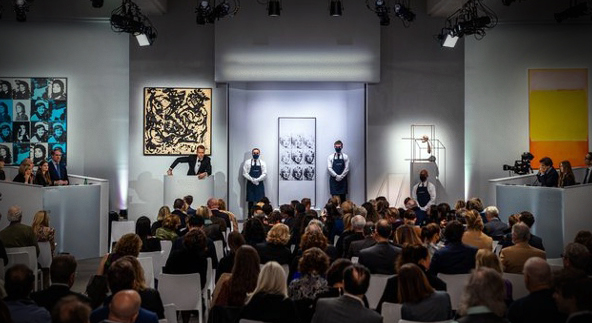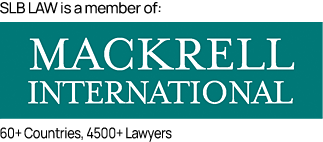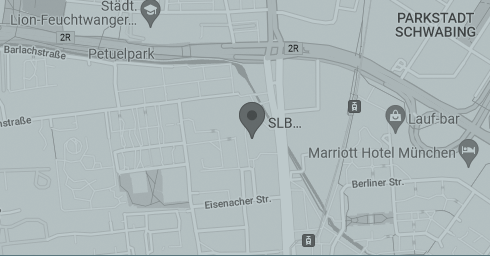
Art auction: What rights does the buyer have when purchasing a forgery at an auction in Germany?
Works of art, antiques or classic cars are often sold at auctions because the consignor and the bidder expect a particularly good deal from this form of price determination, or because the consignor wishes to remain anonymous. In the experience of German lawyer (Rechtsanwalt) Dr. Louis Rönsberg, who advises clients on German art law and auction law, an auction also entails special risks, however, for example if the painting or sculpture purchased at auction subsequently turns out to be a forgery or the vintage car has a material defect. In such cases, a court often has to clarify whether the buyer is entitled to withdraw from the auction, reduce the purchase price or claim damages.
Who is the seller in an auction in Germany?
The first question for the German lawyer is with whom a contract of sale was concluded in the course of the auction. This depends first of all on whether the auctioneer or the auction house is auctioning its own goods or, as is usually the case, the goods of a consignor. If the goods are those of the auction house, the contract of sale is also concluded with the auction house. If the goods are those of a consignor, the lawyer checks whether the auctioneer has auctioned by way of commission as commission agent (§ 383 HGB) or as representative (§§ 164ff. BGB) of the consignor. This can usually be inferred from the auction house’s general terms and conditions (“Versteigerungsbedingungen”).
What rights does the buyer have in the event of forgery or material defects under German law?
If the auctioned item is clearly a forgery or a replica, or if there is another material defect, the lawyer will examine whether the buyer is entitled to subsequent performance (§ 439 I BGB), rescission (§§ 323, 346 ff. BGB), compensation for futile expenses (§ 284, 437 no. 3 BGB) or damages (§§ 437 no. 3, 280 para. 1 BGB). Furthermore, the lawyer will examine whether the contract of sale concluded by auction is null and void, e.g. due to usury (§ 138 para. 2 BGB) or whether the buyer has the right to contest the contract due to fraudulent misrepresentation (§ 123 para. 1 BGB). A number of special features of auction law in Germany must be taken into account.
Is an art forgery even a defect according to the auction conditions of a German auction house?
However, the auction conditions of many auction houses in Germany stipulate that the information on the lots in the auction catalogue is merely non-binding descriptions and does not represent any guarantees or assurances of properties and is only intended to serve the identification of the auctioned goods. It is also often regulated that the catalogue prices or limits “do not represent estimated prices”. In these cases, the question arises as to whether, for example, in the case of an initially undetected forgery, a “defect”, i.e. a deviation of the “actual quality” from the “nominal quality” within the meaning of § 434 para. 2 no. 1 BGB, exists at all. A further question is whether an art forgery is “suitable for the use presumed under the contract” within the meaning of § 434 para. 2, no. 2 BGB or at least for “ordinary use” within the meaning of § 434 para. 3 no. 2. Courts in Germany have ruled on this issue on various occasions and have expressed different opinions, says Dr Louis Rönsberg, who specialises in German art law.
Has the auctioneer excluded liability for forgeries?
If, for example, the auctioned work of art is a forgery or if an auctioned vintage car has a defect and the buyer therefore has a claim against the auction house or the consignor, the lawyer is also faced with the question of whether there is an effective exclusion of liability. This is because the General Terms and Conditions (AGB) of auction houses in Germany usually contain a disclaimer of warranty and a disclaimer of liability. According to the case law of the German Federal Supreme Court (BGH), a limitation of liability for auctions is also possible in principle, as it does not in itself constitute an unreasonable disadvantage (§ 307 para. 2 BGB) and is not surprising (§ 305c para. 1 BGB).
Is the auctioneer’s exclusion of liability for forgeries and defects effective under German law?
In the experience of the German lawyer Dr. Rönsberg, however, the effectiveness and scope of the exclusion of liability may depend on the wording in each individual case. In addition, an exclusion of liability by an auction house in Germany is invalid if the auction house acts fraudulently (§ 444 f. BGB) or if the auctioneer breaches its duty of care. In the case of a forgery in an art auction, for example, the auction house cannot invoke an exclusion of liability under German law if it has breached a duty to investigate or a duty to examine. According to Dr. Rönsberg, the extent of the duty to verify authenticity and provenance depends on the individual case, such as the reputation and size of the auction house or the exclusivity of the work of art.
Conclusion
In addition to the advantages that an auction offers to the buyer, it also has specific risks. These often result from the fact that the bidders were unable to view the respective object (work of art, antique, vintage car, wine, etc.) during the viewing or had to rely on the information in the catalogue due to a lack of their own expertise.
If a buyer has purchased a forgery or a defective item at an auction in Germany, he may be able to cancel the transaction, reduce the purchase price and/or claim damages. In doing so, the respective limitation periods must be observed. Whether such a case exists should be determined in each individual case by a lawyer specialising in German art law or auction law.
If you have any further questions about art law or auction law in Germany, please do not hesitate to contact Dr. Louis Rönsberg and his team. Call us without obligation! (+49-89-51 24 27 0).
Author of the article

Dr. Louis Rönsberg
Rechtsanwalt (Lawyer), Partner
Certified Specialist Lawyer for Banking and Capital Market Law
(Fachanwalt für Bank- und Kapitalmarktrecht)
Certified Specialist Lawyer for Corporate and Commercial Law
(Fachanwalt für Handels- und Gesellschaftsrecht)











